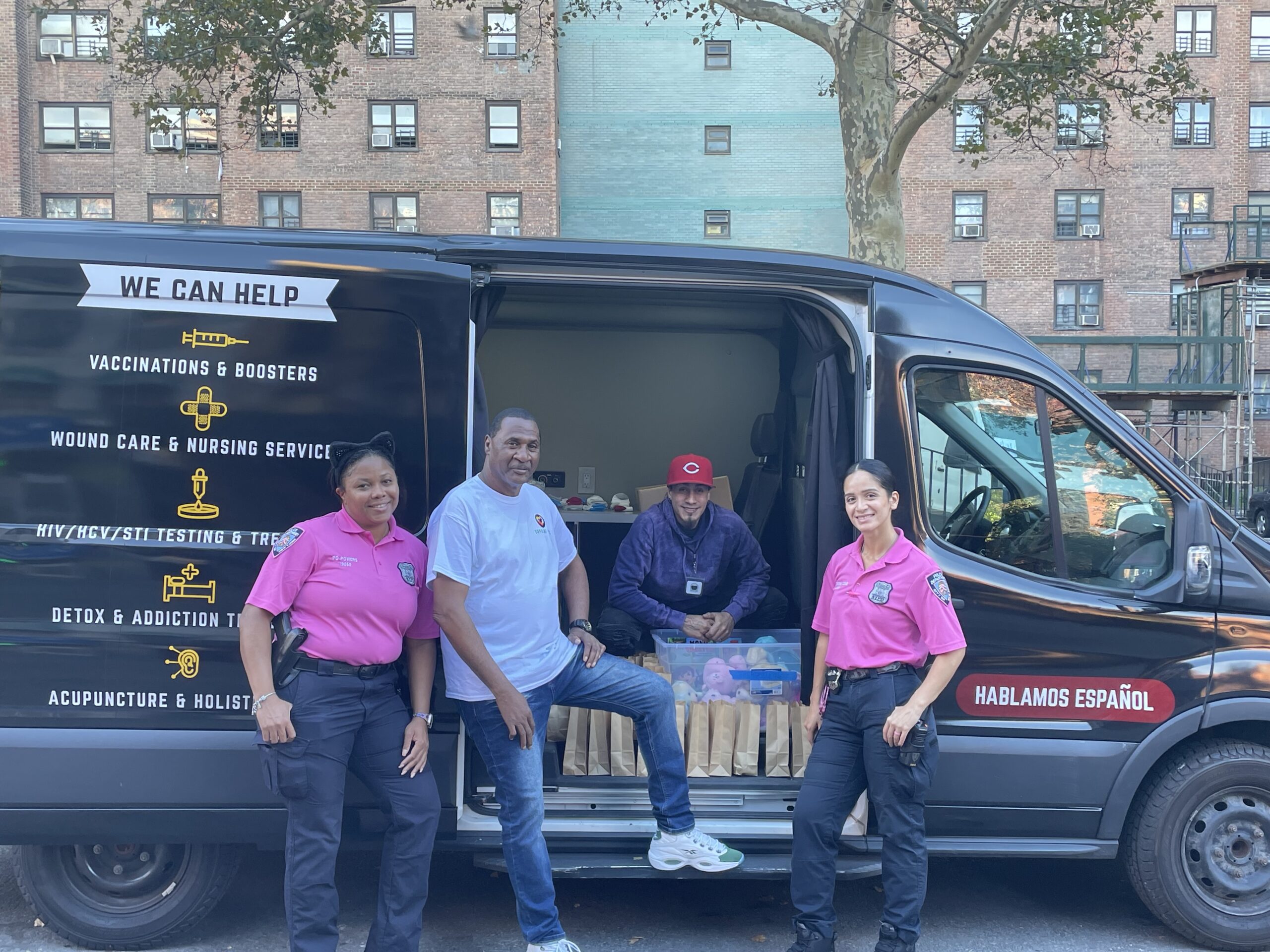
OnPoint NYC: Part of the Community
Critics of overdose prevention centers often claim that they’re a negative force on communities – but at OnPoint NYC, we challenge such expectations each day.
Instead of existing at odds with community institutions such as schools and precincts, OnPoint NYC works alongside them to make our East Harlem and Washington Heights neighborhoods safer, cleaner, and more supportive for everybody.
We keep streets clean and our neighbors safe
Outreach and Public Safety Teams collect syringe litter and other hazardous waste from sidewalks, subway stations, streets, and parks, and redirect those using drugs on the street to our centers, where they can be in a more private and safe setting.
We help community members address their health, stability, and mental health needs
Our drop-in centers provide an access point to a wide array of services for people who use drugs, engage in sex work, or are experiencing homelessness. Participants have access to hot meals, showers, and a safe space to rest – as well as healthcare, therapy services, recovery programs, and more, Many improve their life situations as a result.
We save lives
Our overdose prevention centers have reversed over 1,200 overdoses and counting.
And our community knows this.
OnPoint NYC partners with the local NYPD precincts, over our shared mission of promoting the well-being of the neighborhood. In East Harlem and Washington Heights, OnPoint NYC presents information about our services and offered tours to the NYPD’s 25th and 34th precincts, allowing them the opportunity to see the interventions we provide, and strategize how both parties could coordinate efforts.
For the past few years, OnPoint NYC and the precinct have participated together in joint outreach events and holiday events for the community. As Jason Beltre, OnPoint’s Director of Community Initiatives and Impact, shares, these events are “an opportunity to show the community that our two groups are working in tandem to serve Harlem.”
Theresa Tobin, Chief of Interagency Operations, at the New York Police Department, highlights our positive relationship with the department and said in our baseline annual report, “I’ve been in this business a long time… Maybe 5 years from now, we will be reacting to OPCs like we do safe syringe exchanges. That’s where we are heading. It’s going to be a no-brainer shortly.”
“OnPoint didn’t bring the substance abuse problem to our neighborhood. They came in and saved lives,” says Gretchen Buchenholz, the Executive Director of Association to Benefit Children, in an article for the Brooklyn Daily Eagle. “I want them to continue doing what they’re doing, which is being the best neighbors they can be.” As part of this relationship, OnPoint ensures that the area closest to the organization’s schools and centers are clear of needles each morning, and hosts community events that benefit students and parents alike.
In a recent op-ed for City Limits, public school parent coordinator Julie Atwell similarly shared that OnPoint NYC is “providing dignified care for those who need a place to safely use drugs and for those who just need a safe space, leaving playgrounds as places where our children can be carefree.…As I grapple with the effects of drug-use on our neighborhoods, I am delighted to have another partner in the work of community healing.”
In a new study, conducted by Brown University scholars and published in JAMA, findings show that OnPoint NYC’s overdose prevention centers have not increased crime rates in the areas they operate – providing further evidence for the community benefits of our model.
We’re proud of all the ways that we have been embraced by our community, and in the rewarding partnerships that we have created across our neighborhoods. We know that our harm reduction efforts are creating a safer and more supportive space for everyone – and are heartened to see additional proof of that each day.